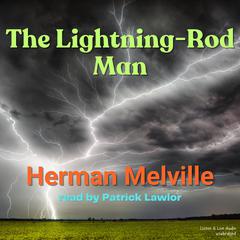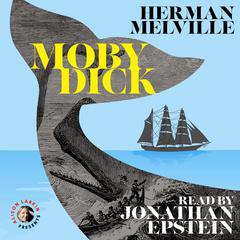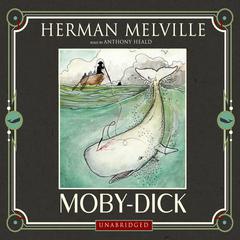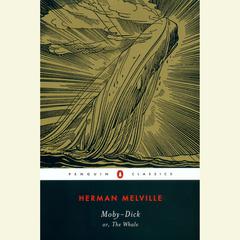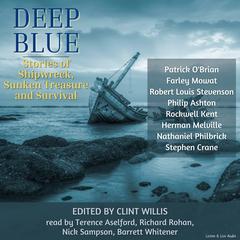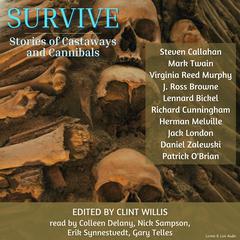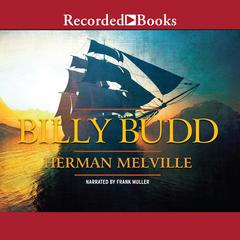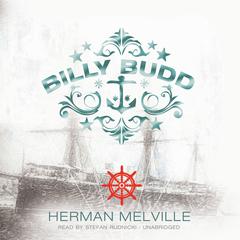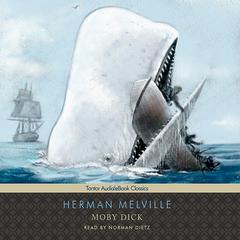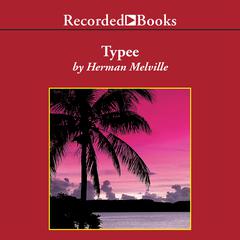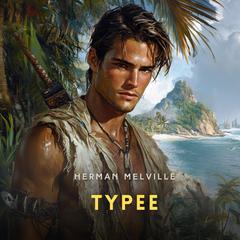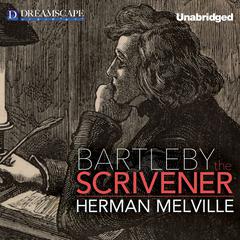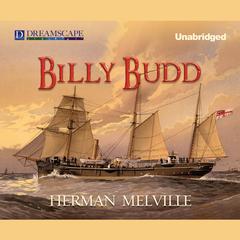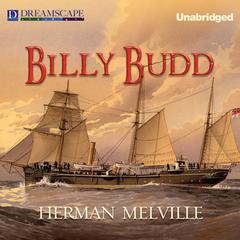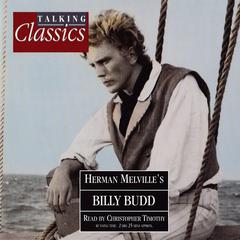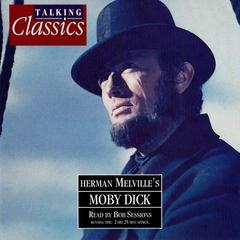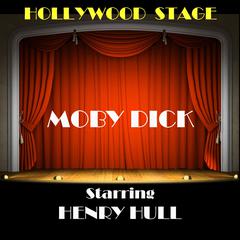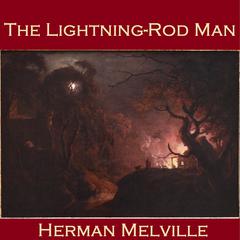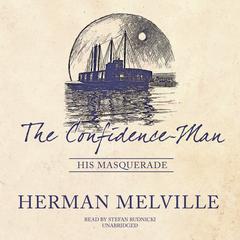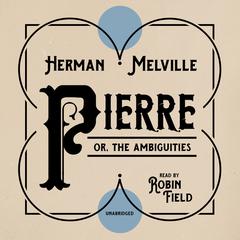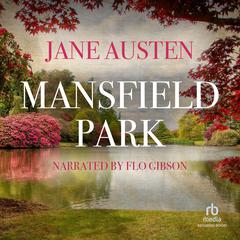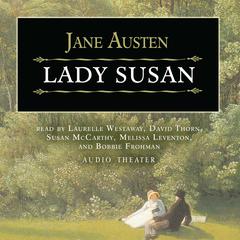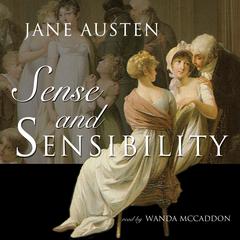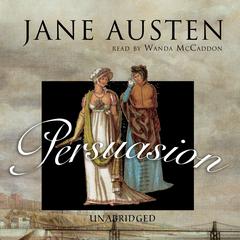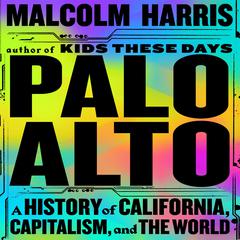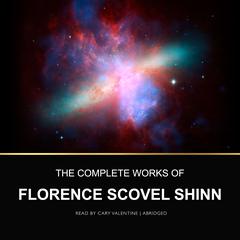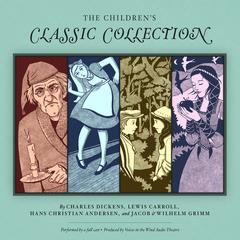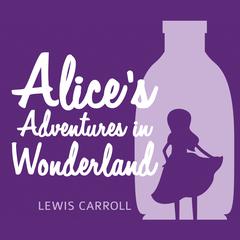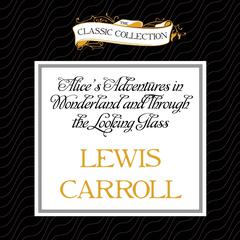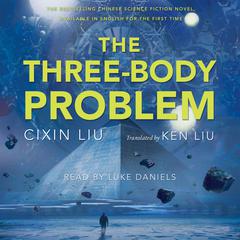 Play Audiobook Sample
Play Audiobook Sample
Benito Cereno Audiobook
 Play Audiobook Sample
Play Audiobook Sample
Quick Stats About this Audiobook
Total Audiobook Chapters:
Longest Chapter Length:
Shortest Chapter Length:
Average Chapter Length:
Audiobooks by this Author:
Publisher Description
With its intense mix of mystery, adventure, and a surprise ending, Benito Cereno at first seems merely a provocative example from the genre Herman Melville created with his early bestselling novels of the sea. However, most Melville scholars consider it his most sophisticated work, and many, such as novelist Ralph Ellison, have hailed it as the most piercing look at slavery in all of American literature.
Based on a real life incident—the character names remain unchanged—Benito Cereno tells what happens when an American merchant ship comes upon a mysterious Spanish ship where the nearly all-black crew and their white captain are starving and yet remain hostile to offers of help. Melville’s most focused political work, it is rife with allusions (a ship named after Santo Domingo, site of the slave revolt led by Toussaint L’Ouverture), analogies (does the good-hearted yet obtuse American captain refer to the American character itself?), and mirroring images that deepen our reflections on human oppression and its resultant depravities.
It is, in short, a multilayered masterpiece that rewards repeated readings and deepens our appreciation of Melville’s genius.
Download and start listening now!
"Ok, the language is pretty dense and kinda boring at first, but give it some time to warm up. Benito Cereno is one of those stories that stands up on its own no matter the time period in which it was written. It has a slow and very detailed beginning because its ending is so wrapped up in those beginning details, but trust me, the ending is worth the wait. I suggest reading this at the same time as a friend, because I read this for a class and the discussions it provoked made it that much better, as we were able to point out certain passages in it that some of us might have missed. This is a short story that definitely sticks with you and encourages its readers to be more active in their reading. It's easy to get to lost in pretty words and passively read a text but this one encourages you to look for what's around the corner and to go back to explore its passages once you've reach its conclusion."
— Shanice (4 out of 5 stars)
Quotes
-
“In our own time of terror and torture, Benito Cereno has emerged as the most salient of Melville’s works: a tale of desperate men in the grip of a vengeful fury that those whom they hate cannot begin to understand.”
— Andrew Delbanco, author, Melville: His World and Work -
“The noblest short story in American literature.”
— Edward J. O’Brien, American author and short-story anthologist -
“Superficially, this is a story of slavery and mutiny on the high seas, but beneath the adventure-charged plot lies Melville’s examination of that subject which so fascinated him: the confrontation of extreme forces of good and evil in the universe.”
— Masterpieces of World Literature -
“Beneath the adventure-charged plot lies Melville’s examination of that subject which so fascinated him: the confrontation of extreme forces of good and evil in the universe.”
— Masterpieces of World Literature
Benito Cereno Listener Reviews
-
" It's Melville, so it's dense, but the suspense and unraveling of the mystery is worth it. "
— Jeanine, 2/20/2014 -
" Melville's ability to paint vivid psychological portraits of his characters is uncanny. Captain Delano's hubris and resultant ignorance is a vivid reminder of how foolish it is to give heed to stereotypes and assumptions. While the scenario here may be dated, or at least seem foreign, the moral is just as applicable today as ever. "
— Mark, 2/15/2014 -
" This book moves in the same way as the craft that Herman Melville describes in such detail, each creek from the deck and streak of dust from the helm leaves us questioning. A sway of the waves, and our suspicions are jolted and just as we hit the water, all seems to be revealed. Over all I enjoyed this book, the details of the ship and the english, just like any older english, only added to the mystery. And when you've finished the book, and you've gained your sea legs, you'll have to read it again and decipher the clues yourself. Or just dive into Moby Dick, if you've taken your Dramamine. "
— Amanda, 2/6/2014 -
" Benito Cereno is the most complex treatment of the brutalities of and incoherences of the human condition. Despite the seemingly conventional moral weights assumed by the point of view of the narration, Melville opens up a spaces of profound philosophical and ethical ambiguity, and, in doing so shreds any preconceptions or simple moralizing. Atlantic Slavery-that greatest of crimes-is interrogated, but in layering multiple levels of victimhood, one puts down the story asking even larger questions about about humanity's endless self-deception. "
— Stuart, 1/30/2014 -
" It's 1/5th the length of "Moby Dick" and about 1/5ht the quality, too. Read about the White Whale instead. "
— Lynn, 1/29/2014 -
" I suppose the laborsome Moby Dick is a must read, if only because it is an important book, but if your view of Melville is that of tedious attention to (boring) detail, I would highly encourage giving Benito Cereno a chance. I haven't read a novella this riveting in a long while - is it a dark comedy? The closest thing I can relate the experience of reading this book to is watching the movie Fargo, which although seems incongruous will make perfect sense after you read it. "
— Tanya, 1/24/2014 -
" love love "
— Teal, 1/14/2014 -
" The only Melville that I ever truly enjoyed. "
— Kim, 1/14/2014 -
" A sea captain happens upon a ship plagued by an unknown assailant. Has the crew been decimated by plague, scurvy, or rebellion? "
— J.smyth.pdx, 1/9/2014 -
" Currently reading with my daughter for her Summer reading assignment. Good thing I'm reading it on my Kindle (r) so that I have the dictionary app handy!! But seriously, good so far!!! "
— Heather, 12/8/2013 -
" valuable but boring "
— Katie, 8/22/2013 -
" Didn't like it. It's just that simple. I read a little bit of "The Good Captain" by Jay Bushman, which was based on "Benito Cereno" & I enjoyed "The Good Captain" much more than "Benito Cereno." Now I see why this text has basically been forgotten. "
— Gertrude, 8/11/2013 -
" An easier-to-swallow work of Melville, though, true to his name, never lacking for deeper study. "
— Mark, 7/28/2013 -
" What if Herman Melville's problems with race in Moby Dick were the entire point of the story instead of the periphery? "
— Justin, 6/18/2013 -
" LOOOOOOOOOOOOOOOOOOVE. "
— Ariel, 4/9/2013 -
" Had to read this for Fiction 2 class. Was okay anyway "
— Jenna, 8/21/2012 -
" I've included this book solely for "The Paradise of Bachelors & the Tartarus of Maids," which is a story even better than its title and is too often overlooked in preference for "Bartleby" and "Benito Cereno". "
— Brent, 4/3/2012 -
" If you like Mutiny stories you'll enjoy this one. Captain Delano was forced into analyzing his situation based on little to no clues. From the point of view of Psychology this was interesting. "
— Liz, 3/20/2012 -
" Without having read Moby Dick, I venture to say this is the best of (minor) Melville. "
— Sarah, 12/25/2011 -
" Masterfully-written and haunting -- a lament over how we cannot, when all is said and done, ever truly understand the thoughts of another, and a deep undermining of authority. "
— Charles, 10/15/2011 -
" "Benito Cereno" is powerful in so many ways, but I have to admit that I slogged through it rather unwillingly. English class, naturally. Also - though this was exactly the point - the racism made me cringe in many places! Now... essay time. "
— Helen, 2/10/2011 -
" Slow, well-crafted story of evil and slavery and rebellion and deceit. "
— Hadrian, 1/7/2011 -
" I was excited about this after reading Bartleby, but I thought it was kind of a borefest. "
— Werebot, 9/19/2010
About Herman Melville
Herman Melville (1819–1891) was born in New York City. Family hardships forced him to leave school for various occupations, including shipping as a cabin boy to Liverpool in 1839—a voyage that sparked his love for the sea. A shrewd social critic and philosopher in his fiction, he is considered an outstanding writer of the sea and a great stylist who mastered both realistic narrative and a rich, rhythmical prose. He is best known for his novel Moby-Dick and the posthumously published novella Billy Budd.
About Stefan Rudnicki
Stefan Rudnicki first became involved with audiobooks in 1994. Now a Grammy-winning audiobook producer, he has worked on more than five thousand audiobooks as a narrator, writer, producer, or director. He has narrated more than nine hundred audiobooks. A recipient of multiple AudioFile Earphones Awards, he was presented the coveted Audie Award for solo narration in 2005, 2007, and 2014, and was named one of AudioFile’s Golden Voices in 2012.




